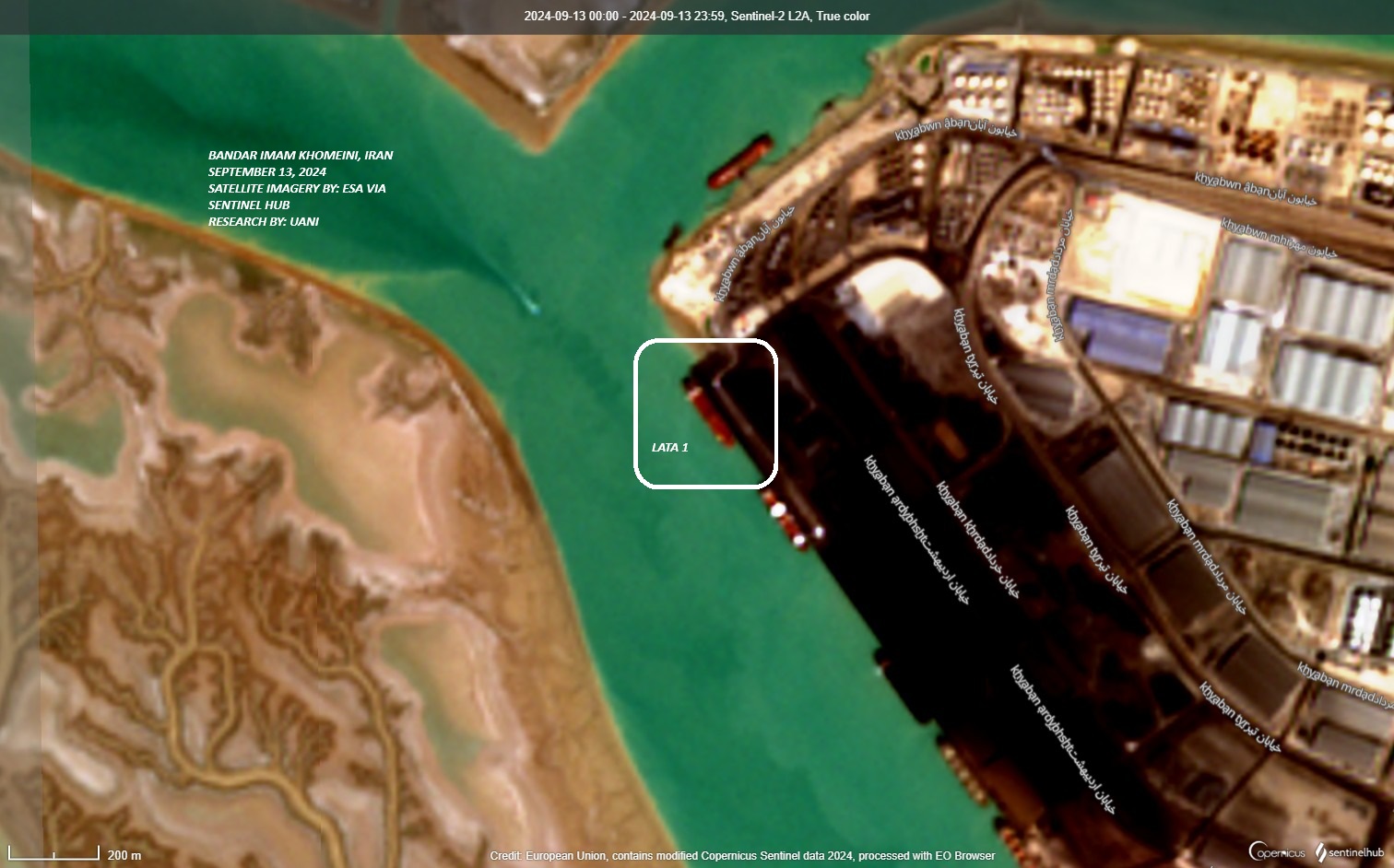September 2024 Iran Tanker Tracker
On September 25, the United States slapped more sanctions on entities and individuals connected to Iran's petroleum sector—by far the regime’s most important financial lifeline. The U.S. Department of Treasury, Office of Foreign Assets Control (OFAC) blacklisted multiple entities—three individuals, four companies, plus nine vessels—all Chinese or Emirati-owned or -based. (Two of the tankers, ETERNAL 8 (IMO: 9232448) and ETERNAL PEACE (IMO: 9259745), sanctioned for their participation in these evasive operations, were already actively tracked by UANI maritime monitoring).
This latest round of sanctions further underscores Iran’s ongoing dependence on a sizeable foreign phalanx of intermediaries and facilitators, which provides critical and illegal services—on-shore and off—to grease the Iranian oil trade: false flagging, hidden and often complex ship-to-ship (STS) transfers, and the obscuring of oil origin, among a host of others.
Of these last practices, Iran and its foreign fleet of helper ships are undoubted masters. Hiding its Iranian provenance smooths the trade for all end-buyers, and helpfully lends plausible deniability to the witting purchaser. Over recent months, Iran has engaged in oil-obscuring with an uncommon twist, involving its Iraqi Kurdish neighbors to the west (see below).
Iranian oil exports for September 2024:
| Country of Destination | September 2024 - Barrels Per Day (bpd)* | August 2024 - Barrels Per Day (bpd)* | July 2024 - Barrels Per Day (bpd)* |
| China | 1,626,287 | 1,250,797 | 1,483,717 |
| Syria | 35,099 | 52,608 | 107,790 |
| UAE | 241,145 | 12,500 | 88,362 |
| Unknown | 27,014 | 64,552 | 0 |
| Total | 1,712,515 | 1,380,457 | 1,759,869 |
*Figures to be updated over the following weeks
Oil from Iraq’s Kurdistan Region
More often than not, like in the above examples, oil from Iran is rebranded and relabeled to obscure its origins. Lately, Iran has landed on another obfuscation innovation—but this time in a reversal of the common practice.
It involves the smuggling of oil from the semi-autonomous Kurdistan Region (KR) of northeastern Iraq across the border into Iran. It is a surging trade, largely due to the closure of the Iraq-Turkey Pipeline (ITP) in 2023. The pipeline closure left KR without a legally approved export route. So Kurdish officials turned to transporting oil into Iran and, to a lesser extent, Turkey.
In violation of official Government of Iraq/SOMO rules, Kurdish oil is transported off-the-books and under-the-radar by truck. Over 1,000 trucks move around 200,000 barrels of oil per day into Iran, according to a July Reuters investigation, generating around $200 million in monthly revenue. This oil is sold at discounted rates of $30 to $40 per barrel, compared to global prices that are almost double. Once inside Iran, the oil is either refined locally into gasoline for domestic consumption or transported to Iranian ports like Bandar Imam Khomeini or Bandar Abbas. So, in a strange twist to the normal run-of show, Kurdish-origin oil is being relabeled as Iranian oil and exported to countries that will take it, notably the UAE.

Satellite imagery of suspected Palau-flagged tanker LATA 1 loading from Bandar Imam Khomeini (Source: Sentinel Hub)
For the KR, this illegal trade brings in a lot of money, although mainly for political and business elites in the two main Kurdish political parties. Ordinary citizens and public employees are reportedly excluded from the cash bonanza despite the immense volume of oil being exported.
On Iran’s side, steeply discounted oil from the KR is a boon as it helps the domestic gasoline supply while freeing up its own oil for exports. And some of this Kurdish oil is rebranded and exported, due to its cheap wholesale price. The Iran-Kurdish oil trade exemplifies Iran’s enduring capability to evade international sanctions, maintaining a steady stream of income that fuels its destabilizing activities throughout the region.
Partnering with Kurdish entities, Iran’s oil camouflage operation is complicating enforcement and weakening the global sanctions regime. The revenue generated from these activities directly supports Iran's military infrastructure, nuclear ambitions, and the regional influence of groups like Hezbollah. As long as these covert oil operations remain intact, efforts to cut off funding for Iran’s destabilizing activities will face significant challenges.
The importance of tracking and halting these evasive oil networks cannot be overstated. UANI’s work in this domain remains at the forefront of ensuring that international sanctions are enforced effectively.
Receive Iran News in Your Inbox.
Eye on Iran is a news summary from United Against Nuclear Iran (UANI), a section 501(c)(3) organization. Eye on Iran is available to subscribers on a daily basis or weekly basis.